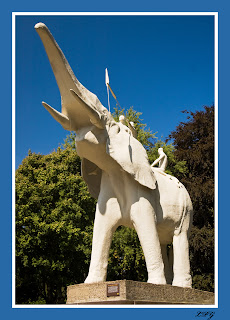Dangerous flowers and pollinators
.jpg)
An interesting article has been published in New Scientist (April 25 - May 1, 2015) under the title ' Bitter sweet nectar: Why some flowers poison bees '. The article describes how in 401 BC a total of 10,000 Greek warriors were behaving as madman on the way back to home after a war against the king of Persia after having eaten some honey made by local bees. They were lucky as they recovered and could continue going home. However, during later wars, there were armies that were slaughtered by the enemy because the soldiers were unable to fight after having eaten the honey; some local armies even used the honey to intoxicate the soldiers of foreign armies and thus this became one of the first known chemical weapons used during war. Chemicals released in nectar of plants The article describes how some plants leak certain chemicals such as nicotine and caffeine into their flowers and so in their nectar . In general, insects don't like these substances as they taste bitte...

